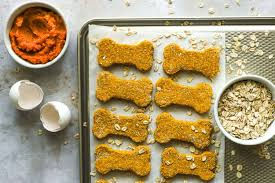Holistic Health for Pets: The Crucial Role of Gut Health and Nutrition
- Amy Lewis

- Aug 23, 2024
- 3 min read
Updated: Oct 9, 2024
As pet parents, we all want to ensure our furry companions live long, healthy lives. While regular vet visits and exercise are essential, one of the most critical aspects of your pet's health is often overlooked: gut health. A well-functioning digestive system is the foundation of your pet's overall well-being, and it all begins with what they eat. This blog will explore the importance of gut health, the impact of good nutrition, and practical tips on how to feed your pet a balanced, wholesome diet.

The Gut-Health Connection
Just like in humans, a pet's gut is home to a vast community of microorganisms, collectively known as the gut microbiome. This community plays a pivotal role in digestion, nutrient absorption, immune function, and even mood regulation. When the gut is healthy, these processes run smoothly, helping to prevent a host of diseases. Conversely, an unhealthy gut can lead to issues like inflammation, allergies, digestive problems, and even behavioral changes.
Why Quality Nutrition Matters
The quality of the food your pet eats directly impacts their gut health. Unfortunately, many low-quality commercial dog foods are packed with harmful ingredients like fillers, artificial preservatives, and by-products that can disrupt the delicate balance of the gut microbiome. Over time, feeding your pet such food can lead to nutrient deficiencies, obesity, and chronic diseases like diabetes and arthritis.
Feeding your pet a well-balanced, high-quality diet can prevent and even alleviate symptoms associated with many illnesses. Foods rich in essential nutrients, antioxidants, and healthy fats support a healthy gut, boost the immune system, and contribute to overall vitality.
Natural Supplements for Gut Health
In addition to feeding your pet quality food, incorporating natural herbs and supplements can further support their gut health. Here are a few herbs that are beneficial for pets:
Slippery Elm: This herb is excellent for soothing the digestive tract and alleviating symptoms of diarrhea and constipation.
Ginger: Known for its anti-inflammatory properties, ginger can help with nausea and improve digestion.
Dandelion Root: A natural detoxifier, dandelion root supports liver function and can help maintain a healthy gut.
Marshmallow Root: This herb can help soothe the gut lining and reduce inflammation.
Before introducing any herbs into your pet’s diet, it’s crucial to consult with a veterinarian to ensure safety and proper dosage.
Cooking for Your Pet: A Healthier Alternative
One of the best ways to ensure your pet is getting a healthy diet is by cooking for them. Preparing homemade meals allows you to control the ingredients, avoid harmful additives, and tailor the diet to meet your pet’s specific needs. A balanced home-cooked diet should include high-quality protein, healthy fats, and a variety of vegetables and grains.
For example, a simple homemade dog meal might include cooked chicken, brown rice, and steamed vegetables like carrots and spinach. Incorporating omega-3-rich foods like fish oil or flaxseed can also support gut health and reduce inflammation.
The Importance of Veterinary Guidance
Before making any significant changes to your pet’s diet, including switching to homemade meals or adding supplements, it’s essential to speak with your veterinarian. They can help you design a balanced diet plan that meets your pet’s nutritional needs and prevent potential health issues. Additionally, any diet change should be introduced slowly. Sudden changes can disrupt your pet’s digestive system, leading to diarrhea, vomiting, or loss of appetite. Gradually mix the new food with the old over 7-10 days to ensure a smooth transition.
Healthy Treats: A Smarter Choice
Treats are a fun way to reward your pet, but not all treats are created equal. Low-quality treats often contain excessive amounts of sugar, fat, and artificial ingredients, which can contribute to obesity and other health issues. In fact, studies show that 55.8% of dogs in the U.S. are overweight or obese, and poor diet is a significant contributor.
To keep your pet healthy, consider healthier alternatives like carrot sticks, apple slices (without seeds), or small pieces of cooked meat. These treats are low in calories, free of harmful additives, and provide essential nutrients that support overall health. Remember, treats should make up no more than 10% of your pet’s daily caloric intake to prevent weight gain.
Conclusion
Gut health is the cornerstone of your pet’s overall well-being, and good nutrition is key to maintaining a healthy digestive system. By feeding your pet a balanced, high-quality diet, incorporating natural supplements, and making informed choices about treats, you can significantly improve their health and longevity. Always consult with your veterinarian before making any dietary changes, and remember to introduce new foods gradually. Your efforts in providing the best nutrition for your pet will be rewarded with a happier, healthier companion for years to come.
.png)



Comments